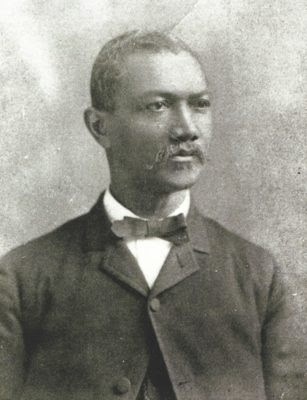#RandomThoughts For the Week In Honor of Black History Month In the United States
On this Black History Month in the United States, we remember and honor all who have contributed to America as we present a curation of thoughts:
| |||||||||||||||||||||||||||||||||||||||||||||
|
In honor of Black History Month, Historynet Now! is celebrating and commemorating the history, ongoing contributions, and achievements of Black people.
This week, we want to tell you about the extraordinary life of Alexander Augusta, the U.S. Army's first Black surgeon. Born in an age of slavery in 1825, the ever-inquisitive Augusta was denied entry at the University of Pennsylvania due to being “inadequately” prepared for the curriculum. Undeterred, Augusta enrolled as a medical student at the University of Toronto’s Trinity College, where he graduated in 1856.
Over the next few years, Augusta remained in Toronto, reading from afar the terrible headlines that detailed the spiraling path towards civil war in his home nation.
But in 1863, with the enforcement of the Emancipation Proclamation, August saw his chance to return home. He immediately drafted a letter to President Abraham Lincoln and the Army Medical Board in Washington, D.C., offering his services.
The Medical Board rejected him. But he still was undeterred and headed for D.C. to petition the board in person.
“I have come near a thousand miles at great expense and sacrifice,” he told them, “hoping to be of some use to the country and to my race at this eventful period.”
He passed the qualifying exams with flying colors—making him the U.S. Army's first Black surgeon and, with a commission as a major, the highest ranking African American officer in the U.S. military.
As always, we'd love to hear your thoughts. Email us at news@historynet.com.
Alexander Augusta swam forward against waves of racism to become the United State Army's first Black surgeon
Cheaters never prosper… unless you’re an American president that is
In the century since the end of World War I historians have pointed to many causes—but is it possible none of the combatant nations wanted war?
As part of a growing effort to share the story of Black troops in the U.S. Army during the Civil War, three new monuments honoring the contributions and sacrifice of the USCT have recently been unveiled












Comments
Post a Comment